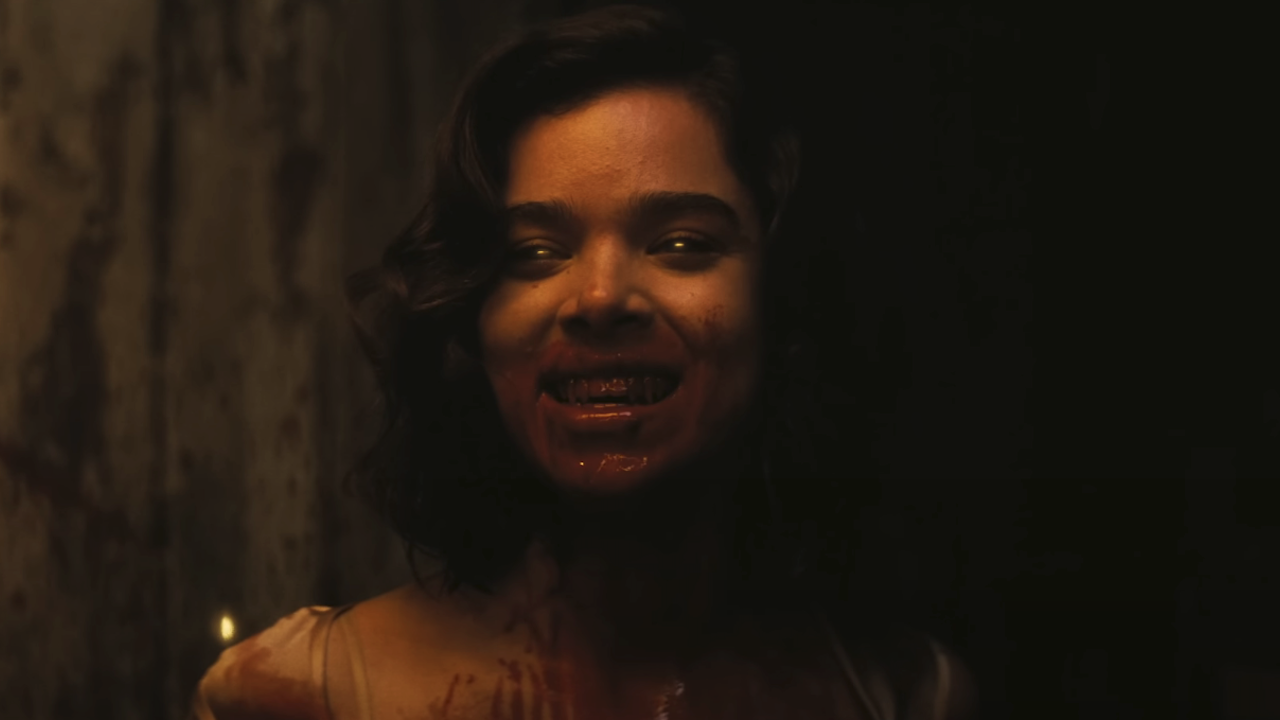The Hobbit: An Unexpected Journey arrives in theaters under a brutal weight of expectations, coming not only after the magnificent Lord of the Rings trilogy, but with the knowledge that there are two more films to come in this adaptation of a very slim novel. It's hard to see the maps of Middle Earth and hear Howard Shore's score and not brace yourself for the sweeping emotions and battles of Lord of the Rings, but anyone who has read The Hobbit knows to expect a lighter, smaller story, one more about amiable dwarves and a grouchy hobbit than stirring calls to heroism.
And though The Hobbit feels in its first half very much like a brief story stretched far too thin, it eventually settles into its own enjoyable rhythm, a comic adventure that's a good enough excuse to make a return visit to Middle Earth. As Bilbo Baggins, the comfortable hobbit unwillingly dragged onto this journey with a band of 13 dwarves, Martin Freeman is a nicely flustered and quick-witted presence; it takes a while for Bilbo to embrace his call to adventure, but by the time he does, he feels like a guy worth following for two more movies. Add in returning characters like Ian McKellen's Gandalf and (however briefly) Andy Serkis' Gollum, plus the handful of dwarves who manage to distinguish themselves from that rowdy bunch, and An Unexpected Journey becomes a comfortable little adventure-- and an even better one if you can convince yourself to stop comparing it to Lord of the Rings.
Not that the movie actually encourages that-- the film begins on the exact same day as Fellowship of the Ring, with an older Bilbo (Ian Holm reprising his role) preparing for his birthday party and sending his nephew Frodo (Elijah Wood in a fun cameo) off to meet Gandalf. Between this frame device and a recreation of the battle with Smaug the dragon that lost the dwarves their pile of gold in the mountains, it takes a while to get around to the unexpected dinner party Bilbo hosts for the 13 dwarves, and even longer to get the group of them on the road toward reclaiming the dwarves' ancestral home (there are two songs sung during that party. Two!) Bilbo is a far less willing adventurer than the wide-eyed Frodo, and for the film's first hour he's a grouchy and bumbling presence, clashing immediately with the solemn dwarf leader Thorin Oakenshield (Richard Armitage) and wishing frequently he was back home in his hobbit hole. You might wish the same.
Then the group stumbles upon a mean group of hungry mountain trolls and Bilbo and the movie alike finally find a purpose, digging into the awkward group dynamics and setting up Bilbo's redemption in Thorin's eyes. The giant battle scene against Smaug the dragon is being saved for the next film, but we at least get an impressive cavern full of goblins to run away from, not to mention the return of Gollum, whose "riddles in the dark" scene is riveting, and Andy Serkis' performance as remarkably nuanced as ever. Some story elements are added from the book to give more of a sense of epic continuity, like a flashback to Smaug's takeover of the dwarves' mountain and a scene with Galadriel (Cate Blanchett) and Elrond (Hugo Weaving) warning of Sauron's potential rise; the movie can't quite find a natural ending point, but the hints at a larger story bode well for the coming sequels.
I saw An Unexpected Journey in the much-touted 48 frames per second and in 3D, an experience I recommend, but maybe only on second viewing. I never adjusted to the look, which makes everything feel more real and closer to you, an effect that's utterly bizarre when seeing giant trolls or goblins or even a band of tiny dwarves. The technological experimentation may have helped Peter Jackson get excited about a smaller-scale return to Middle Earth, but its effect on the movie is harder to gauge; it's fascinating seeing familiar characters like Gollum move with an unbelievable realness, but also nearly impossible to feel as swept away by this journey to an imaginary world.
When Jackson took on The Hobbit after Guillermo del Toro dropped it in 2010, it seemed like an obligation more than the passion that drove him to make the original trilogy. But for its occasional moments of excess and unhurried pace, An Unexpected Journey is proof that Jackson still has a knack for stories in this world, and that he may have more surprises in store as the rest of this new, unexpected trilogy unfolds.
Staff Writer at CinemaBlend












